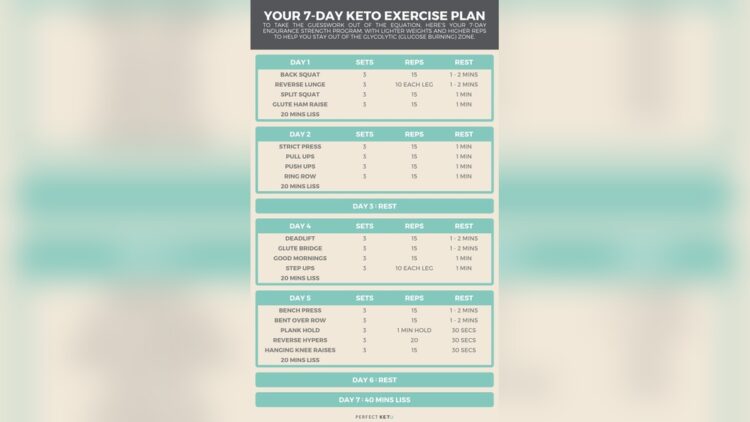The best foods for menopause belly are fruits, vegetables, lean proteins, whole grains, and healthy fats. The transition into menopause can bring a range of physical and hormonal changes for women, including a tendency to gain weight around the belly area.
However, making certain dietary changes can help manage this issue and support overall health during this period. Incorporating a variety of fruits and vegetables into the diet provides essential vitamins, minerals, and fiber while promoting weight loss and reducing belly fat.
Lean proteins, such as chicken, fish, and tofu, help maintain muscle mass and boost metabolism. Whole grains, like brown rice and quinoa, are rich in fiber and help control appetite. Additionally, consuming healthy fats, such as avocados and nuts, provides satiety and supports hormone production. By focusing on these foods, women can navigate menopause more comfortably and reduce belly fat.

Credit: www.katspangler.com
Understanding Menopause Belly Fat
Menopause is a natural stage in a woman’s life that marks the end of menstruation. Along with hormonal changes, many women experience unwanted weight gain, particularly in the abdominal area. This is commonly referred to as menopause belly fat. Understanding the factors that contribute to this stubborn belly fat can help women combat it and maintain a healthy lifestyle. In this article, we will explore two key factors that play a significant role in menopause belly fat – hormonal changes and metabolism slowdown.
Hormonal Changes
During menopause, there is a decrease in the production of estrogen and progesterone, which are the female reproductive hormones. These hormonal changes can lead to an increase in belly fat. Estrogen plays a vital role in distributing fat throughout the body. However, as estrogen levels decline, fat tends to be stored more in the abdominal area. This shift in fat distribution contributes to the development of menopause belly fat.
Metabolism Slowdown
Another factor that contributes to menopause belly fat is a slowdown in metabolism. Metabolism is the process by which the body converts food into energy. As women age and go through menopause, their metabolism tends to slow down. This means that the body burns fewer calories at rest, making it easier to gain weight, especially around the abdominal area. A slower metabolism also makes it more challenging to lose weight, even with regular exercise and a healthy diet.
To combat menopause belly fat, it is essential to focus on maintaining a healthy lifestyle. This includes regular exercise, a balanced diet, and managing stress levels. Engaging in activities such as aerobic exercises, strength training, and yoga can help boost metabolism, burn calories, and reduce overall body fat. Incorporating foods that promote hormonal balance, such as foods rich in phytoestrogens like soybeans and flaxseeds, can also be beneficial.
By understanding the underlying factors contributing to menopause belly fat, women can take proactive steps towards managing their weight and maintaining overall health and well-being.
Impact Of Diet On Menopause Belly
To effectively manage menopause belly, it is important to understand the impact of diet on this common symptom. Making the right food choices can play a key role in reducing belly fat, promoting hormonal balance, and alleviating other menopausal symptoms. By incorporating a balanced diet filled with inflammation-fighting foods and hormone-healthy options, women can take control of their menopause belly and improve their overall well-being.
Inflammatory Foods
Several foods can trigger inflammation in the body, leading to weight gain and an increase in menopause belly. These foods should be limited or avoided to maintain a healthy weight during menopause. Some examples include:
- Processed foods: Foods high in artificial additives and preservatives can contribute to inflammation and weight gain.
- Sugary treats: Excessive consumption of sugary foods and beverages can spike insulin levels and promote fat storage.
- Trans fats: Foods like fried and packaged snacks often contain trans fats, which can increase inflammation and visceral fat.
- Refined carbohydrates: White bread, pasta, and rice can cause blood sugar spikes and contribute to belly fat accumulation.
- Alcohol: Regular alcohol consumption can disrupt hormone balance and promote weight gain, particularly in the abdominal area.
Hormone-healthy Foods
While certain foods can aggravate menopause belly, others can support hormonal balance and aid in weight management. Incorporating these hormone-healthy foods into your diet can make a positive impact on menopausal belly fat:
- Lean proteins: Opt for lean sources of protein like chicken, fish, tofu, and legumes, which promote satiety and help maintain muscle mass.
- Fiber-rich foods: Include plenty of fruits, vegetables, whole grains, and nuts in your diet to support healthy digestion and reduce cravings.
- Healthy fats: Incorporate foods rich in omega-3 fatty acids such as salmon, avocados, and nuts, which can help regulate hormone levels.
- Probiotic-rich foods: Consuming fermented foods like yogurt, kefir, and sauerkraut can improve gut health and reduce inflammation.
- Phytoestrogenic foods: Soy-based products, flaxseeds, and chickpeas contain natural compounds that mimic estrogen and can help alleviate menopausal symptoms.
Superfoods For Managing Menopause Belly
Menopause brings about changes in a woman’s body, including weight gain, especially in the abdominal area. Fortunately, incorporating the right superfoods in your diet can help manage menopause belly. These foods provide essential nutrients and can aid in maintaining a healthy weight during this transitional phase. Let’s explore some of the best superfoods that can help you combat menopause belly.
Fiber-rich Foods
Fiber-packed foods play a crucial role in managing menopause belly. They aid in digestion, prevent constipation, and contribute to a feeling of fullness. Incorporating these foods into your diet can help control weight gain during menopause. Some excellent sources of fiber include:
- Whole grains: Incorporate whole wheat, barley, quinoa, and brown rice into your meals.
- Fruits and vegetables: Opt for plenty of leafy greens, broccoli, berries, and apples.
- Legumes: Beans, lentils, and chickpeas are excellent sources of fiber.
Healthy Fats
Consuming healthy fats is vital for managing menopausal weight gain. They help in balancing hormones and reducing inflammation. Include these superfoods in your diet to support a healthy body composition:
- Avocados: Rich in monounsaturated fats, avocados are beneficial for heart health and weight management.
- Fatty Fish: Salmon, mackerel, and sardines are high in omega-3 fatty acids, aiding in weight control.
- Nuts and Seeds: Almonds, walnuts, chia seeds, and flaxseeds provide healthy fats and essential nutrients.
Exercise Strategies For Menopause Belly
When it comes to managing menopause belly, exercise plays a crucial role alongside a healthy diet. Incorporating exercise strategies can help women in their menopausal years not only shed unwanted belly fat but also improve overall physical and mental well-being. In this article, we will explore two key exercise strategies for menopause belly: Strength Training and Cardiovascular Exercise. Let’s dive in!
Strength Training
Strength training exercises are highly effective in combating menopause belly as they target both muscle building and fat burning. By increasing muscle mass, women can boost their metabolism, which helps burn calories even at rest. Here are a few strength training exercises to consider:
- Planks: Planks engage the core muscles and help strengthen the abdominal region. Begin by holding a plank position for 30 seconds and gradually increase the duration as you build strength.
- Deadlifts: Deadlifts target multiple muscle groups including the glutes, hamstrings, and lower back. Start with lighter weights and focus on maintaining proper form.
- Squats: Squats are excellent for targeting the lower body, including the quadriceps, hamstrings, and glutes. Begin with bodyweight squats and then progress to using weights for added resistance.
Incorporate these exercises into your routine at least two to three times a week. Remember to start with lighter weights and gradually increase the intensity as you build strength over time.
Cardiovascular Exercise
Cardiovascular exercise not only helps burn calories but also improves heart health and increases endurance. Engaging in regular cardio sessions can aid in reducing menopause belly and promoting overall weight loss. Consider the following cardiovascular exercises:
- Brisk Walking: Brisk walking is a simple yet effective form of exercise that can easily be incorporated into your daily routine. Aim for at least 30 minutes of brisk walking every day.
- Cycling: Cycling is a low-impact exercise that helps burn calories and strengthens the leg muscles. Whether outdoors or indoors on a stationary bike, aim for 20-30 minutes of cycling sessions.
- Swimming: Swimming is a great full-body workout that is gentle on the joints. Try to swim for at least 20-30 minutes, ensuring a consistent pace that elevates your heart rate.
Choose activities that you enjoy and that fit your lifestyle. Aim for at least 150 minutes of moderate-intensity cardiovascular exercise per week. Remember, consistency is key to achieving the desired results.
Lifestyle Changes For Combatting Menopause Belly Fat
During menopause, many women experience a shift in their body’s distribution of fat, resulting in the notorious menopause belly. While this change is both frustrating and common, there are lifestyle changes you can make to combat menopause belly fat. By incorporating stress management techniques and prioritizing quality sleep, you can work towards a healthier body during this transitional phase.
Stress Management
Managing stress is crucial for combatting menopause belly fat. Increased stress levels can lead to hormonal imbalances and weight gain, particularly in the abdominal area. Here are some effective stress management techniques:
- Practice deep breathing exercises regularly.
- Engage in regular physical activity, such as yoga or walking, to reduce stress.
- Take time for yourself each day to relax and engage in activities you enjoy.
- Consider incorporating meditation or mindfulness practices into your routine.
Quality Sleep
Adequate sleep plays a significant role in maintaining a healthy weight, especially during menopause. Lack of quality sleep can disrupt hormonal balance and increase cravings for unhealthy food choices. To ensure quality sleep, you can:
- Establish a consistent sleep schedule, going to bed and waking up at the same time each day.
- Create a sleep-friendly environment by keeping your bedroom cool, dark, and quiet.
- Avoid electronic devices and stimulating activities before bedtime.
- Practice relaxation techniques, such as reading or taking a warm bath, to help unwind before sleep.
Remember, making these lifestyle changes may take time, so be patient with yourself. By prioritizing stress management and quality sleep, you can positively impact your overall health and work towards reducing menopause belly fat.

Credit: ocweightlosscenters.com
Frequently Asked Questions On Best Foods For Menopause Belly
What Are The Best Foods For Menopause Belly?
Eating a diet rich in fruits and vegetables can help reduce menopause belly. Foods high in fiber can also aid in weight management. Examples include leafy greens, berries, whole grains, and lean proteins.
Can Certain Foods Worsen Menopause Belly?
Yes, consuming processed foods, sugary snacks, and drinks high in added sugars can contribute to menopause belly. These foods are often high in calories and low in nutrients, leading to weight gain and increased belly fat.
How Does Hormonal Imbalance Affect Menopause Belly?
During menopause, hormonal changes can cause a redistribution of fat in the body, resulting in an increase in belly fat. Estrogen levels decrease, which can lead to a decrease in metabolic rate and an increase in fat storage around the abdomen.
Are There Any Specific Exercises To Reduce Menopause Belly?
Engaging in aerobic exercises like walking, jogging, or swimming can help burn calories and reduce menopause belly. Strength training exercises like planks and lunges can also help tone the abdominal muscles and improve overall body composition.
Conclusion
Incorporating menopause-friendly foods can help combat belly fat and alleviate symptoms. The diverse range of foods, from leafy greens to lean proteins, provide essential nutrients and support overall well-being. By prioritizing whole, nutrient-dense foods and staying active, women can manage menopause belly more effectively.
Embracing these dietary changes can make a significant difference.












Leave a Reply